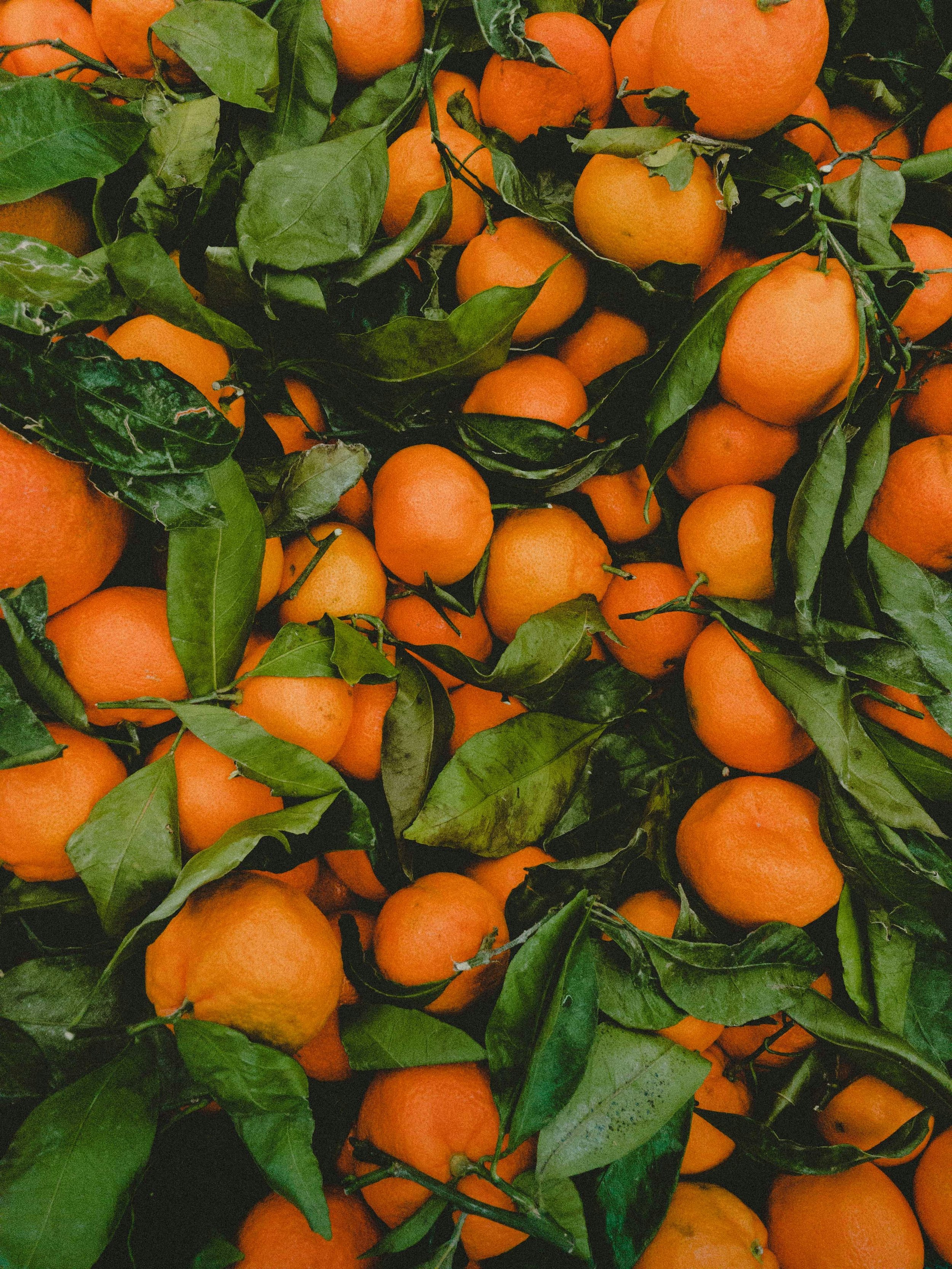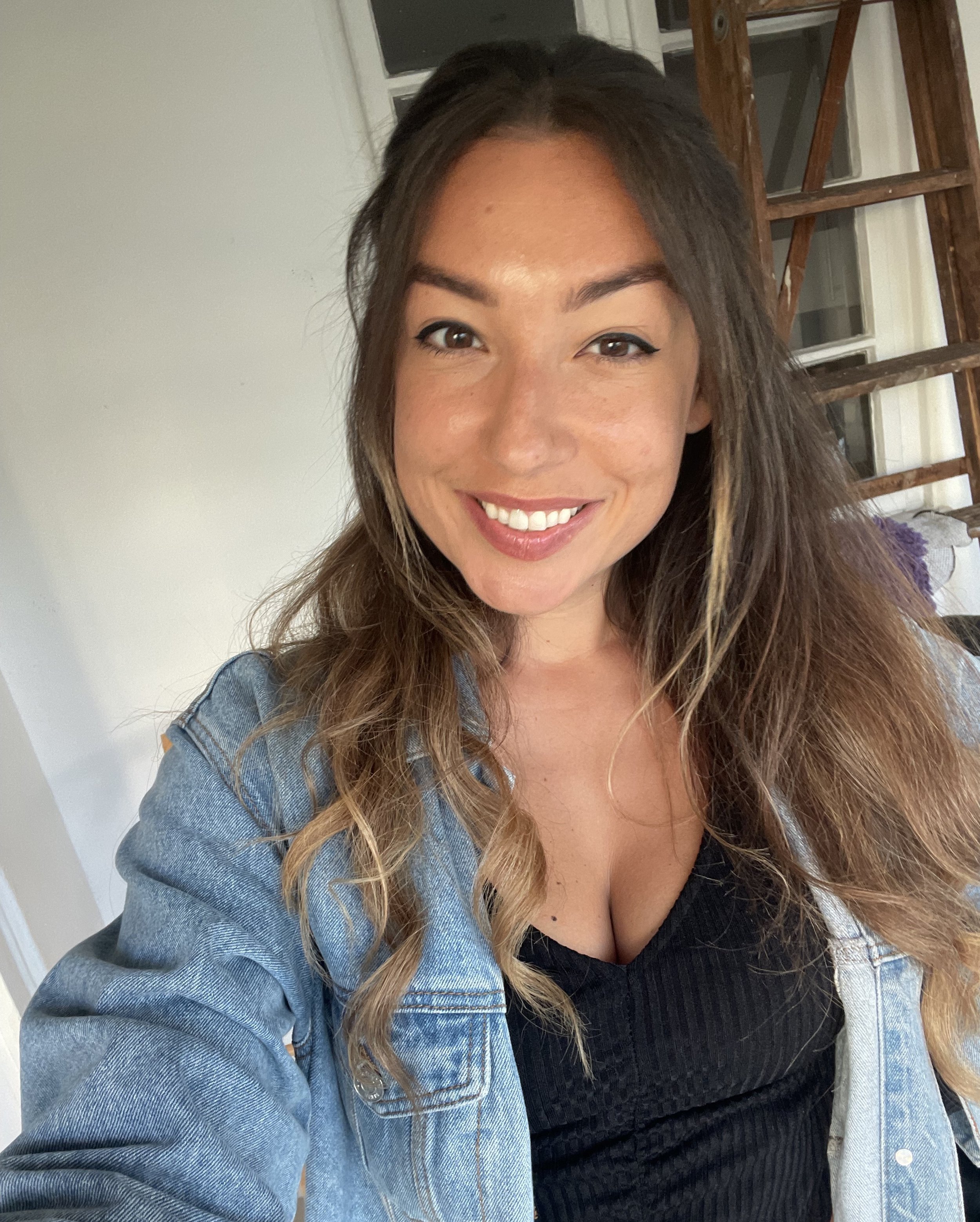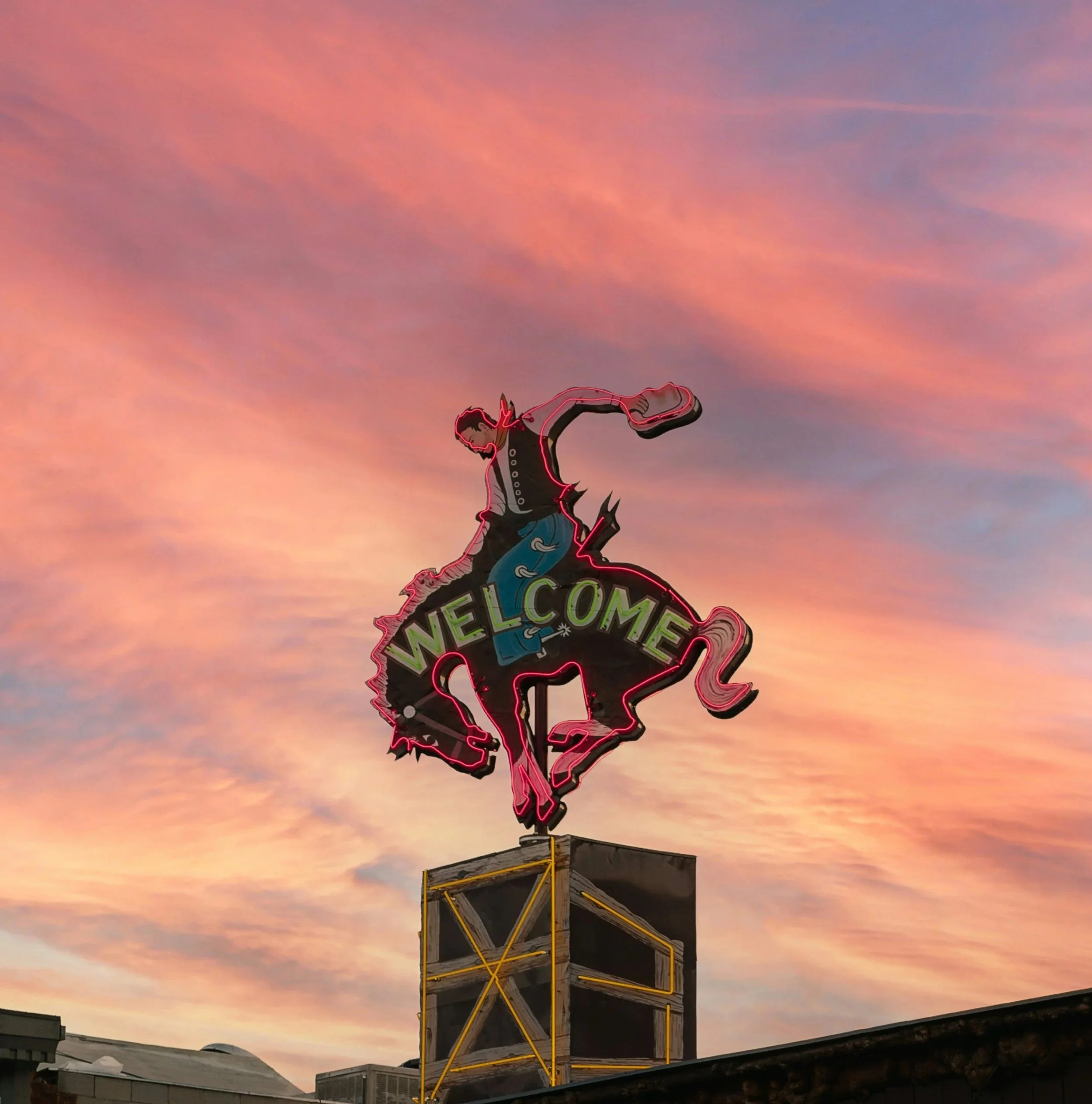To My Fruit Vendor

You were well known in our house. You first opened your shop in early 2012, and my grandfather often stopped by to stock up on oranges and mandarins. He liked to make my grandmother, my brother, and I freshly squeezed orange juice every morning. “See how they’re soft and the shell is thin?” he’d say, pointing at the overflowing bags of citrus on the kitchen counter. He’d experimented with grapefruit and pomelo, but oranges were a clear winner for being sweet.
That summer, I parked the old silver Volkswagen Passat outside your shop for the last time. I was leaving for London a week later; my bags were already packed. I should have been excited, but instead I was mostly anxious that it could all come to an early halt. My parents had been against the move. To them it felt like a whim—to pursue writing instead of finding a “real job.” My grandfather had been my only supporter, saying, “If this is her passion, we must give her a chance.” Grocery runs were welcome escapades from the lectures about throwing my future away, and today had been a considerable haul. The trunk overflowed with sparkling water, kefir, and bricks of fresh cheese. I would have bought everything at the supermarket, but my grandfather had a routine. “We’ll buy those at my fruit vendor,” he said at my attempts to reach for anything green. Which brought us here.
There was a pile of watermelon balanced by your door. He leaned against one, tilting his ear towards the striped shell and gave it a knock. “This one,” he said when the sound echoed back hollow—a sign that it was sweet. I picked it up, ready to weigh it, while he took off his hat, revealing his mostly bald head, and waved it in your direction. The few white strands remaining on his head had recently been clipped. “Do you have any good oranges for juicing?” he asked and, as always, you did have a crate you’d set aside for him. “I’ve spoilt this lot with fresh orange juice every morning,” he told you, winking. You chatted for a while as you wrapped everything in coloured plastic bags and handed them to me. My grandfather then waved his hat again and stepped out. I stood there wondering if London would ever feel like home without him there.
“Wooden crates on unfolded tables, labels in black marker denoting price per kilogram, country of origin (‘Romania’). Garlic, onions, and potatoes. You always kept the local produce out front.”
I had started driving his car soon after my grandmother died that spring. Can you imagine: alone after fifty years? They had grown up on the same street and had been together since he was twenty and she sixteen. He was earnest, reliable, and cautious while she was extravagant, unpredictable, and fearless. “This grandmother of yours, she’s something extraordinary,” he’d say and his admiration only grew. “You take after her.” I'd beam knowing it was the greatest compliment he could give. Without her, he seemed lost now, as if he had reverted to the young man he was before they met, clueless to what would become of his life.
In our family, we were each dealing with grief in our way. To me, that meant easing his. I became a fixture in his apartment, a faithful grocery carrier and chauffeur. We spent the summer planning for my move to London, running daily errands, or sitting in comfortable, quiet companionship watching TV. On Saturdays, we went to the cemetery. With candles and bouquets of gladioli, we visited lost relatives until we reached my grandmother’s grave. There, he’d fall silent and I more chatty. “Look at what they wrote on this tomb,” I’d point to a neighboring one and read some awfully rhymed poem. Sometimes he'd smile. Lighthearted death-inspired humor was hard to master, but I tried.
*
A decade later, that life is gone. Saying goodbye to London, I decided to spend the summer in Bucharest before my next travels. It feels like a different city than the one I remember.
One morning, as I was looking for a coffee shop, a sliver of grey sky threatening rain made me turn left down an alleyway. I vaguely remembered a shortcut, my eyes on the fossilised pale pink chewing gum embedded in the old asphalt walkway. I was about to pass by your door without looking up. I was about to, until an eerie familiarity halted me. I knew this place. Wooden crates on unfolded tables, labels in black marker denoting price per kilogram, country of origin (“Romania”). Garlic, onions, and potatoes. You always kept the local produce out front.
So little had changed that for an instant it felt like I stepped back into the past. Only the PVC banner was new, the background of kiwi, pineapples, and optic white letters spelling “Fruit and Veg.” It looked gaudy against the grey wall marked with red and black name tags, political statements, and obscene signs. The door is ajar and I see your silhouette: the brown hair, the navy apron. You are still here. Has Bucharest kept something of my past?
A decade ago, you started your own adventure. You had just opened this shop and in doing so you were creating your life. Has it turned out as you hoped? I wonder if we were looking for the same thing: a sense of freedom, you in starting your own business, me in starting a new life abroad. What ignited your search for more?
Growing up, my grandparents’ stories stretched the edges of my imagination beyond the city’s borders, till I felt like I had no choice but to leave. I remember the shelves above the kitchen unit, cluttered with wooden sculptures of Hindu deities, bronze vases, mother of pearl binoculars, and faces carved in elephant tusks, all brought back by my grandfather from his travels in Asia, South America, Europe, and Africa. He spent much of his free time shouting at different sports teams on TV, but on a random afternoon my brother and I would come home to find him listening to an aria from Madame Butterfly, deeply enraptured. My grandmother would ask, “You know who composed this?” We were clueless. “Puccini. You must know these things.”
For an afternoon snack, my grandmother would smear a salted cracker with butter and red caviar and wash it down with homemade plum raki she kept in a plastic CocaCola bottle by her armrest as a digestif. Lunch was equally unpredictable: Mondays could be a chicken stew and the rest of the week frogs’ legs, bone marrow, and escargots. My grandmother often said that if she had my grandfather’s chance to travel, she wouldn’t have come back. I believed her. She took a few trips to Paris, London, and Munich, and she loved telling stories about the grandeur of the West. For all the cities she didn’t get to visit, she satisfied her curiosity by reading. She collected hundreds of volumes, heavy tomes of Russian literature squeezed between miniature volumes of poetry. She recited French verses for my brother and I, dragged us to the theatre every Friday, and then to the newly opened KFC for deep fried chicken wings.
No wonder I can no longer find it, the Bucharest of my childhood. It was a vibrant painting of the city. And you were in my little frame.
*
Did you think of my grandfather that week when he didn’t show, or the next? Did anyone tell you that he died just a month after I left for London? I wonder if you waited for him to return, and if you felt any sense of loss when you realised that he wouldn’t, that he was gone. I wonder if you ever thought of me. You probably didn’t, and why would you know that I spent a decade traveling across the world, trying to mend the heart his passing broke.
You wouldn’t know that I think of you every time I smell oranges. You wouldn’t know that some of my happiest memories still carry that scent of sitting on a Saturday morning in my pyjamas in my grandfather’s armchair with Sindy, our dachshund, curled up in my lap, her wagging tail drumming against the armrest.
“And that old grief now feels more like gratitude, for having a past so rich in beauty and joy.”
I walk into your shop, the tiny room is still covered in shelves, the same desk in laminated wood in the middle, carrying the same scale. You greet me, but there’s no smile. “Can I help you with anything?” you ask. Your hair is thick and curly, your eyes still brown and kind. You haven’t changed at all. Have I?
I ask for a kilo of grapes, and try to hide my shaking as I grab the bag. I am a stranger to you now. My chest tightens. A spectral past plays around me, like a movie projected onto the walls. A silver car parked out front, a man and his granddaughter standing in this shop and you there, behind that desk. A version of my old Bucharest still in colour, the scent of freshly squeezed orange juice hanging in the air between us.
“I don’t know if you remember, but when you opened this shop, my grandfather and I would come here often.” My voice breaks as I speak.
Your eyes soften as you realise who I am. “I remember him.”
The words tie a knot in my throat. “It’s been a long time,” I say.
You nod, “It’s been a long time.”
Turning to leave, the Bucharest of my present stares back. Whenever I’d visited before, it was the absences I noticed: the friends that moved away, Sindy passed away, my grandparents who no longer lived downstairs, and the scent of orange juice missing. The people that made up my happy memories plucked out one by one. I reverted to a helpless, grieving child. I was terrified that I’d never outgrow the grief, that my happiness would always remain in the past. Bucharest and I would always be tainted by loss.
Yet this time is different. That fear is gone and I can see not just the absences, but what has grown in their place: a new version of my home, with different happy memories. My mother now comes by your store; she buys peaches, plums, sometimes apples. The ground floor apartment, with the terrace where we’d play backgammon in the summer, now holds the sounds of my parents’ laughter. On the very spot where the little dachshund used to curl up now snoozes an old and gentle rottweiler. And it no longer smells like oranges, but instead of my dad’s popcorn and my mother’s flowers. I am no longer the girl for whom the old version of this city was her entire world; instead, I am the woman I dreamt I would become, with my own shelves full of trinkets, my own stories of adventure to tell. And that old grief now feels more like gratitude, for having a past so rich in beauty and joy.
I’ll keep walking for a while. Who knows what else I’ll find.
About the Author
Diana Medesan is an emerging travel and adventure writer, currently working on her debut memoir. This collection of personal essays chronicles her journey across the globe as she seeks to rediscover the effortless joy of childhood. Her quest has led her from attempting to summit the tallest peak in the Andes and embarking on solo expeditions across the Alps to freediving in the Indian Ocean. Through her writing, Diana aims to inspire others to embark on their own adventures and renew their connection to the natural world. When she’s not writing, Diana is typically immersed in planning her next adventure.
Read Diana Medesan’s “Behind the Essay” interview in our newsletter.
Edited by Tusshara Nalakumar Srilatha.
Header photo by Jeremy Yap.











